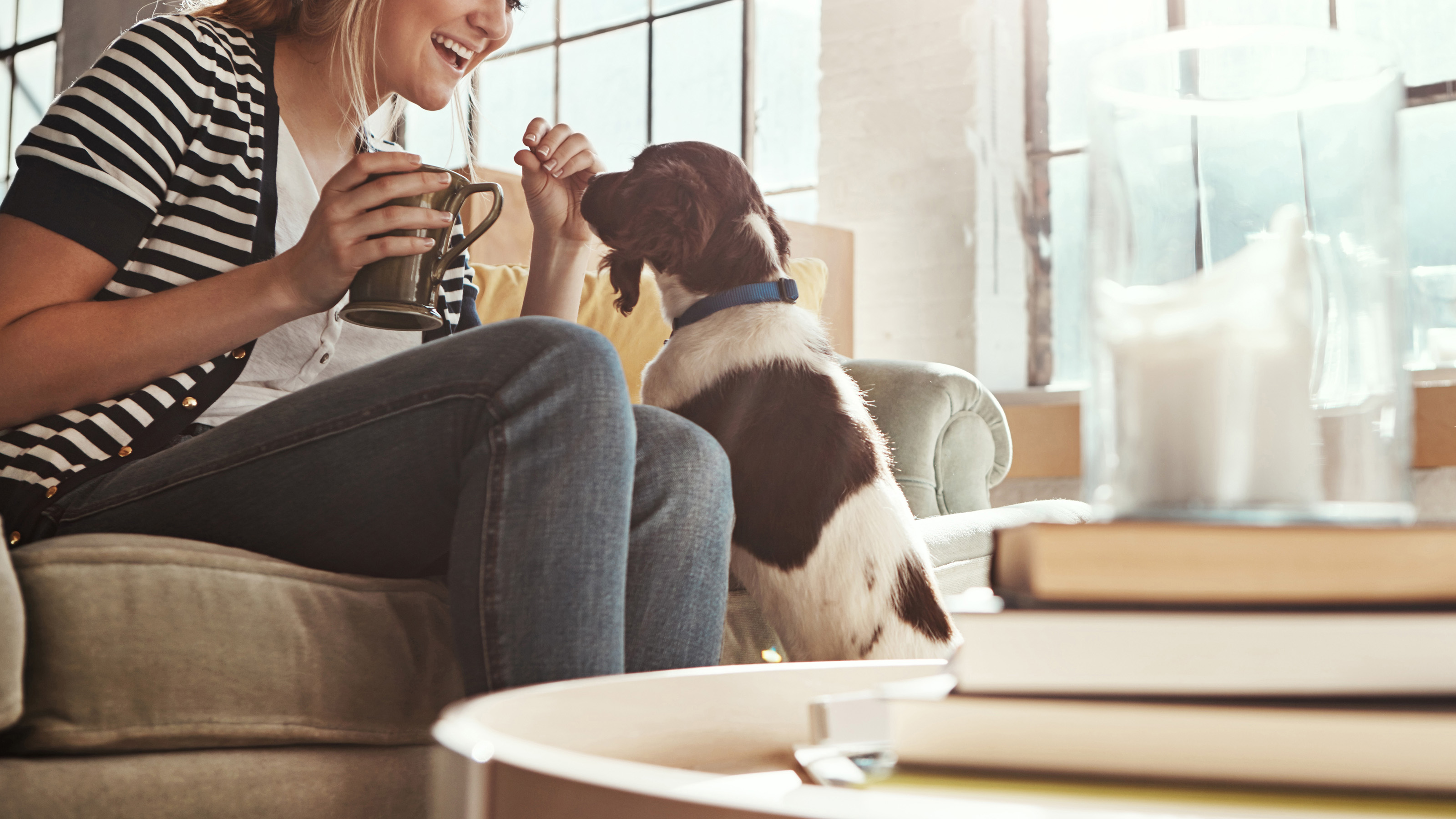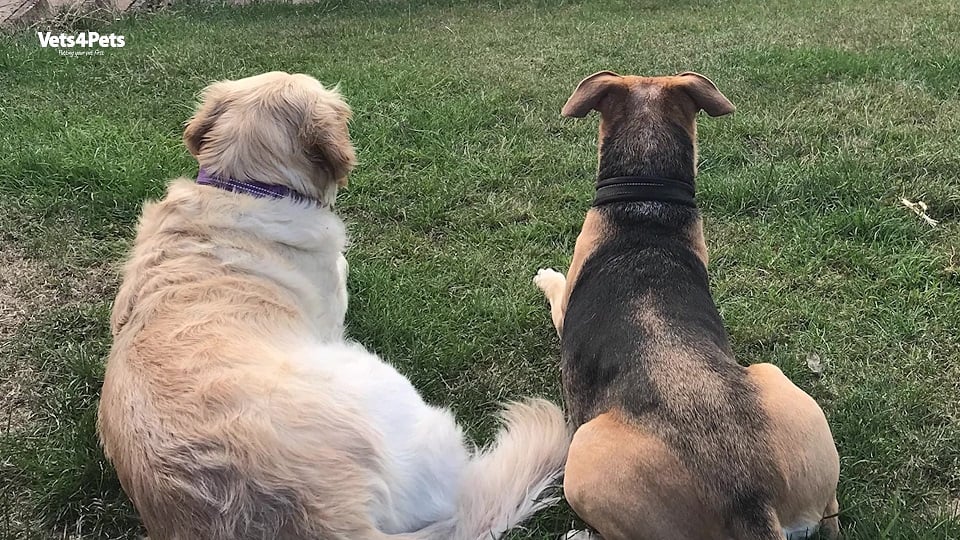
Dementia in Dogs
Is it old age or is it dementia?
Older dogs can suffer from dementia, also known as canine cognitive dysfunction syndrome. It’s thought to affect nearly a third of 11 to 12-year-old dogs and over two-thirds of dogs aged 15 to 16 years. So, how do you tell the difference between dog dementia and old age, and what can you do about it?
Canine dementia affects all breeds. Older dogs developing dementia gradually begin to behave differently, such as forgetting commands, sleeping more in the day, and being restless and vocal during the night.
Although dementia isn’t curable, there are things you can do to slow its progression. The earlier you catch it, the more effective those interventions can be.
There is no definitive test for dementia in dogs. It’s diagnosed by looking for behaviour changes and ruling out other medical reasons for these changes. To help screen your dog's behavioural changes use this screening questionnaire.
- If your dog isn't displaying any behaviours, take the questionnaire again in three to six months.
- If the questionnaire suggests cognitive problems, contact your vet who will perform a physical examination and recommend treatment options.
Vets use the following behaviour checklist, which is given the acronym DISHAAL:
D = Spatial or temporal Disorientation
Getting lost in familiar places, staring blankly, walking into things, or repeatedly asking to go out.
I = Social Interactions
Altered relationships, becoming clingy, needy, irritable, or aggressive, or showing reduced greeting behaviour.
S = Sleep-wake cycle
Sleep more during the day, while being restless, barking, or whining repetitively during the night.
H = House-soiling
Going to the toilet indoors and not asking to go outside.
A = Alterations in Activity levels
Aimless pacing, obsessive licking, or less enthusiastic about going out, playing, or eating.
A = Anxiety
Attention-seeking behaviour, separation anxiety, or fearfulness of people or places they know.
L = Learning and memory
Forget previously learned behaviour, less likely to respond to commands, or slow to adapt to change.
FAQs
Although there is no cure for canine dementia, a tailor-made management plan can slow its progression.
Provide places where your dog can rest undisturbed, take them for short walks, and have a bedtime routine, including a toilet trip, to help them settle at night.
Accompany your dog to the garden rather than waiting for them to ask. To make it easier to clean up mistakes, put puppy training pads in strategic places indoors.
Go down to your dog's eye level and re-arrange furniture to prevent them from getting disoriented. Monitor them to ensure the changes don’t make things worse.
Hand signals and tasty treats can help dogs to perform a desired action. You could also consider training new actions that are easier for your dog to manage.
When going out, use a close-fitting harness with a short line. If there's good visibility, with little risk of tripping anyone or getting it caught, an extendable lead gives them freedom.
Dogs displaying dementia symptoms can become targets of aggression from other dogs so monitor them when mingling and separate them from other dogs if you go out.
Going away? It's less disruptive for a pet-sitter to care for your dog in your home. Plus, spending quality time with your dog improves quality of life and helps to maintain cognitive function.
There is evidence that diets containing antioxidants and omega-3 fatty acids are beneficial to older dogs alongside regular behavioural enrichment measures, such as short training sessions and social interactions.
Supplements containing medium-chain triglycerides (MCTs), antioxidants, essential fatty acids, vitamins, and amino acids have shown in trials to demonstrate positive effects on dogs’ dementia-related symptoms.
The active ingredient of licenced prescription medicine in the UK is a drug called selegiline hydrochloride, which increases antioxidant activity and decreases free radical formation. Studies found that dogs showed improvements in their sleep-wake cycle, toilet training, and activity levels.
Dog Advice
Read more of our expert dog advice to keep your dog happy and healthy.

